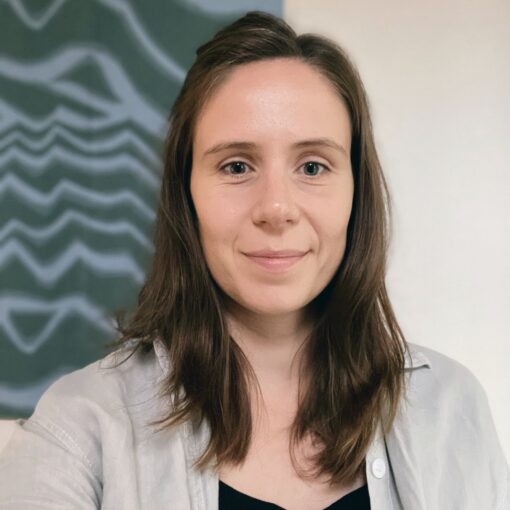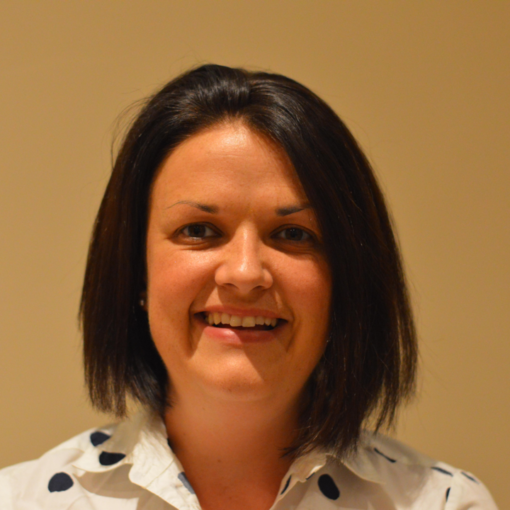PhD; Political Science and International Studies, University of Birmingham, 2014
| Advanced Manager, Knowledge Management | |
|---|---|
| EY Global Delivery Services (EY GDS) | |
Year entered into a non-academic position: 2017
Job highlight: Transforming my lifelong interest in acquiring knowledge into a full-time job.
My research training set me up to: Quickly spot inconsistencies in processes, identify data and knowledge gaps, and devise ways to address and solve these problems effectively.
Left academia after: Having successfully completed my first-ever term as a Lecturer in March 2021.
What’s your background? I was born and raised in Mexico City. I finished my BA in International Relations at the Tecnológico de Monterrey, and then I moved to the UK to do an MSc in Urban and Regional Studies, at the University of Birmingham. I stayed at Birmingham for my PhD in Political Science and International Studies. Once I concluded it, I lectured at various British universities.
I then moved to the US to become a Postdoctoral Scholar and Visiting Fellow, at the University of Southern California. I came back to the UK to undertake positions as a Senior Member at the North American Studies Programme, at St Antony’s College, and Vacation Visiting Research Fellow, at the Rothermere American Institute, both at the University of Oxford.
I started working on consultancy in parallel to my responsibilities as Guest Researcher at the Centre for Political and Constitutional Studies, in Madrid. I then lectured at two universities in Poland, while doing my MA in International Relations at the University of Warsaw. After taking full-time positions at global firms in Poland, and making my way up the corporate ladder, I left academia.
Why did you move away from academia?I consider corporate environments far more meritocratic than academia. This is especially true for young scholars and early-career researchers.
Although we are often told that academia is built upon hard work, which is assessed based on its contribution to the advancement of human knowledge, and rewarded meritocratically with professional progression, I think this is more of an aspiration than a reality in academia.
Is there anything you miss about academia? Of course! Teaching is the thing I miss the most about academia! It is what drew me into the profession.
I was amazed at how great some of my teachers at school, and lecturers at university were, and I wanted to be like them!
I lectured for many years. Looking at the audience and seeing that “wow!” moment in which students understand the relevance of an idea, concept, or theory is what kept me motivated to deliver my courses.
I enjoyed getting students interested in the topics and classes I was delivering, and I made every effort to draw them into content which they expected to be boring and irrelevant. And it worked! I earned awards for my teaching at two different British universities and always received praise and amazing feedback from my students.
No other award compares to the satisfaction of having delivered a course which students loved!
How did you get this job? Did you face any challenges when considering a move away from academia or applying for the role? I got this job as a progression from my previous corporate jobs. I started in 2019 as a Data Analyst at Accenture, and in about 3 years I had moved to Advanced Manager at EY.
Initially, I regarded my full-time job at corporations as secondary to my academic job. Possibly, that is how recruiters also perceived it, as many of them did not consider it would be possible for me to work full-time in the position for which they were considering me, while lecturing part-time, doing a full-time MA, and learning a foreign language.
It took a lot of effort to overcome the preconceptions that corporate recruiters have about academics (namely, that we know how to tell others how to do things, but we cannot do those things ourselves).
Fortunately, my hiring manager at Accenture had a good feeling about my positive and proactive attitude, and I was hired for my first full-time corporate job.
From there, the sky is the limit.
What motivated you to/why did you choose the sector you transitioned into? My main motivator was securing income and job stability. After holding so many academic positions with set-time contracts, in which no progression was guaranteed, despite any achievements or contributions that could be (and were) made to the relevant universities or research centres,
I really wanted to achieve job security, and stop worrying about availability of funding.
In 11 years of academic career, I had never been offered a permanent contract (!). And asking for raises (and being successful at it), was something that I almost never heard from any of my colleagues, regardless of the university or country in which they were working. In comparison, within six months of my first corporate job, I was offered an indefinite contract and a raise!
Ever since, every corporation for which I have worked has offered me a permanent contract, raises, bonuses, tokens of appreciation, and promotions. None of this would have been possible in academia.
Did you think you had the skills required for your current position before you started? Were you right? Definitely! Academics are individuals with lots of skills!
We are skilled at thinking critically, analysing the root causes of problems, and finding novel solutions.
I cannot count the number of times I was told at interviews for jobs outside academia, that I was overqualified for the position at hand. I am yet to understand how that could be an issue to any company. But I never doubted that my work and life experiences had equipped me well to take jobs outside academia. And I was right.
To this day, all the jobs that I have held have enhanced the skills with which I was equipped when I graduated from my PhD, but none have gone beyond the unique challenge of expanding human knowledge, even if in a very small field, which is the ultimate requirement to become a Doctor of Philosophy.
How did your PhD prepare you for your current job? For example, what were the transferable skills that you developed during your PhD that are most relevant to your current job? Above all, my PhD helped me develop my critical thinking skills. And nothing is more difficult than being critical of one’s own ideas. When you are faced repeatedly with the challenge of findings gaps and jumps fallacies and erroneous inferences or assumptions, in your own thinking, you become very skilled and effective at avoiding making those mistakes in your own work, and identifying them in other people’s work on your own , and other people’s work. That is quite helpful when you are faced with any problem.
For instance, whenever I am working on a project, I find it quite useful to ask myself and others not what is the desired outcome, but why and how did we conclude that that is indeed the outcome we want. Often, I find that time and effort can be saved knowing why and how we are doing something, rather than what we are doing. That change in perspective is still relatively uncommon in non-academic settings.
For this reason, to me, the most transferable skill that you will develop during your PhD will be critical thinking. And it lasts for a lifetime.
Did you have any preconceptions about your sector that proved to be wrong? Not really. If anything, they proved right.
Can you describe a typical week in your job? My job is to find the best way to communicate and preserve knowledge within the organization. Experiences on best practices is the main item which I am intended to capture, and then transform into a product usable by other practitioners. My job involves interviewing and engaging with other employees at EY, knowing what makes them excel at their jobs, and sharing that information with others. I help to create knowledge that would otherwise be lost or unknown. To transmit such knowledge, I create narratives, dashboards, and other interactive digital products .
What is the workplace culture like? Please include comments on work-life balance, flexibility, remote working? I would say that EY has a very open but complex environment. There are many different parts of the company spread across geographies around the world, working in various sectors, including tax, technology, and consultancy. Thousands of people from many different countries work at EY, so we communicate in various languages –with English being our lingua franca. We work in a flexible manner, so it is indeed possible to meet the duties of work, while fulfilling the responsibilities of daily life. We work both remotely and on-site. Our office, located in the business district of Warsaw/ Poland, is modern, bright, and colourful, so I enjoy going there to meet with my colleagues.
Do people with a PhD frequently get hired in the company/sector? I would not say so. I have worked at various global corporations in the consultancy sector and rarely have I met another employee with a PhD. It is, however, far more common in other sectors. In the pharmaceutical sector, it is easier to come across another PhD holder.
What are your favourite parts of your job? My favourite part of the job is analysing numerical data and turning it into a useful narrative. Data without context or purpose is not quite worthy. Data must be transformed into information, and then information into knowledge. Creating persuasive and insightful narratives is an essential part of our work as academics. And so is determining what is the best way to deliver knowledge to others. And I get to do those two as part of my job.
What are your reflections on your career path?
I wish I had been told beforehand how unfairly structured academia is, how biased it is against young scholars, and how financially insecure it is. Had I known that I would not have invested my youth in an academic career.
Rather than spending my most productive years in life writing and submitting papers for peer-review, searching for funding, pursuing grants, or taking-part time teaching contracts, I would have looked for a corporate job straight after my MSc. I would have still done a PhD, but later in life –rather than in my twenties.
During my time in academia, the compensation I received, and the career progression I made, never corresponded to the effort which I was putting into my jobs, or the quality of the work I was delivering for the higher education institutions for which I was working.
The fact that people go into academia for the love of knowledge does not entail that they should not be fairly compensated for their work.
Do you have any advice for current graduate students and postdocs considering a career outside of academia?
Do it! PhDs acquire many incredibly valuable skills which are still very rare in society. But the evident abundance of overachievers in academia, might make you think that you are not as good a professional as others, and that your skills are commonly found elsewhere. That is the reason for which the imposter syndrome is so common among academics.
Do not be deterred! Your skills are rare and valuable, and your insights will be appreciated. The grass is indeed greener on the other side.
What do you know now that you wish you’d known when exploring a transition? I wish I had known that academic CVs are not appreciated, or even welcome, in the corporate sector.
I sent many applications to hundreds of potential employers using my academic CV, thinking that showing all the experiences and skills that I had gained throughout my academic career would be insightful and valued by recruiters –so they would know the range of things academics can do. Almost never did I receive a reply to my application, or when I did, it was negative. Sadly, not every company values experience gained at academic institutions. It was only when I trimmed my CV to a standard two-page corporate-style one, that I received calls back.
I have seen the CVs of scholars doing the transition to corporations, and many of them make the same mistake I did. I do my part by providing helpful advice on how to create eye-catching, corporate-friendly CVs. And it has worked for them!
Can you recommend any relevant resources, organisations or events that might help somebody new to the sector find out more about it? Probably the best places to start are the corporate websites of EY, and the other Big Four firms for the relevant geography in which you are interested. You can explore the services they offer, the news they share with their audiences, and the technologies which they are using. EY and other consultancies regularly organize campus visits, or virtual workshops to showcase their work. I would suggest following the companies in which you might be interested on LinkedIn and Facebook, to know what they are up to, and what talent needs they have. You will find out even about events to join which will be interesting and relevant to your (possible) job search outside academia.





